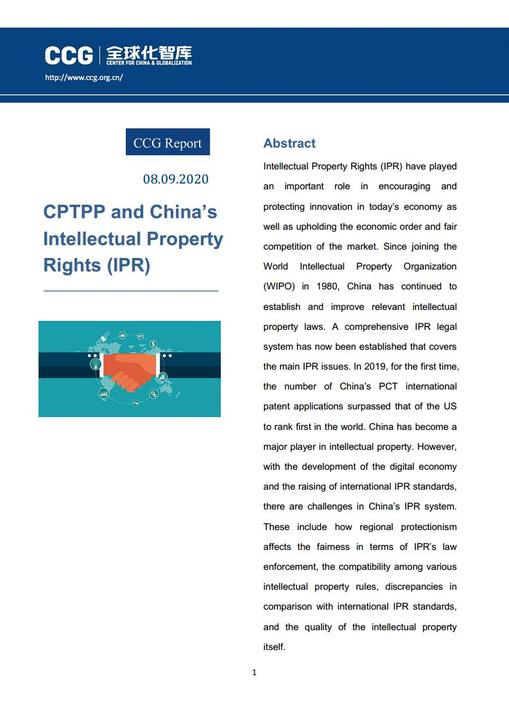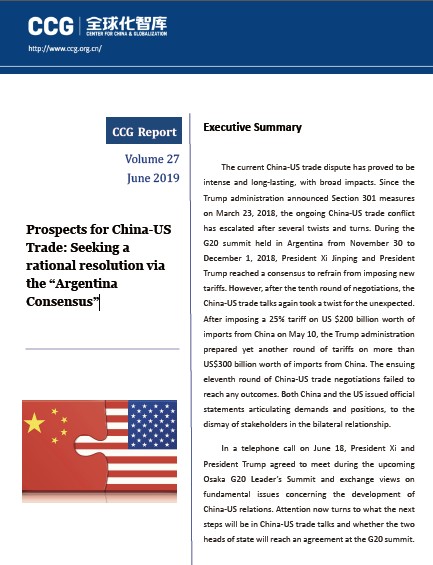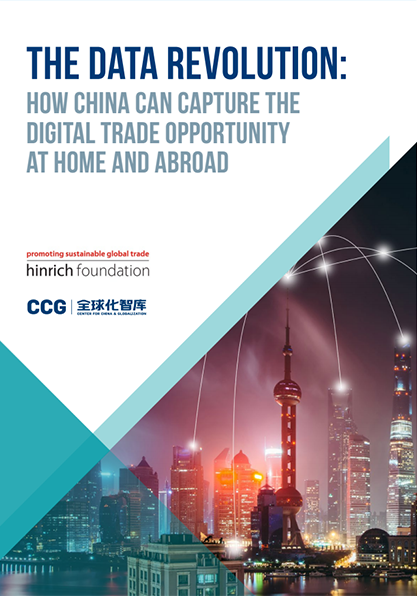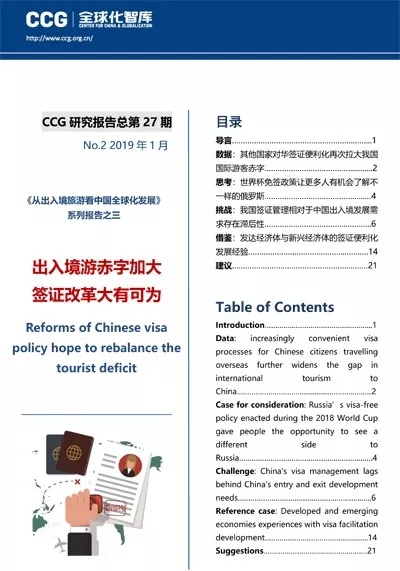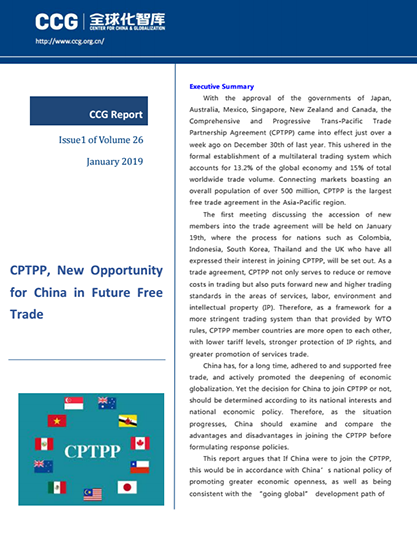CCG & LinkedIn issue Chinese Graduate Career Development Report

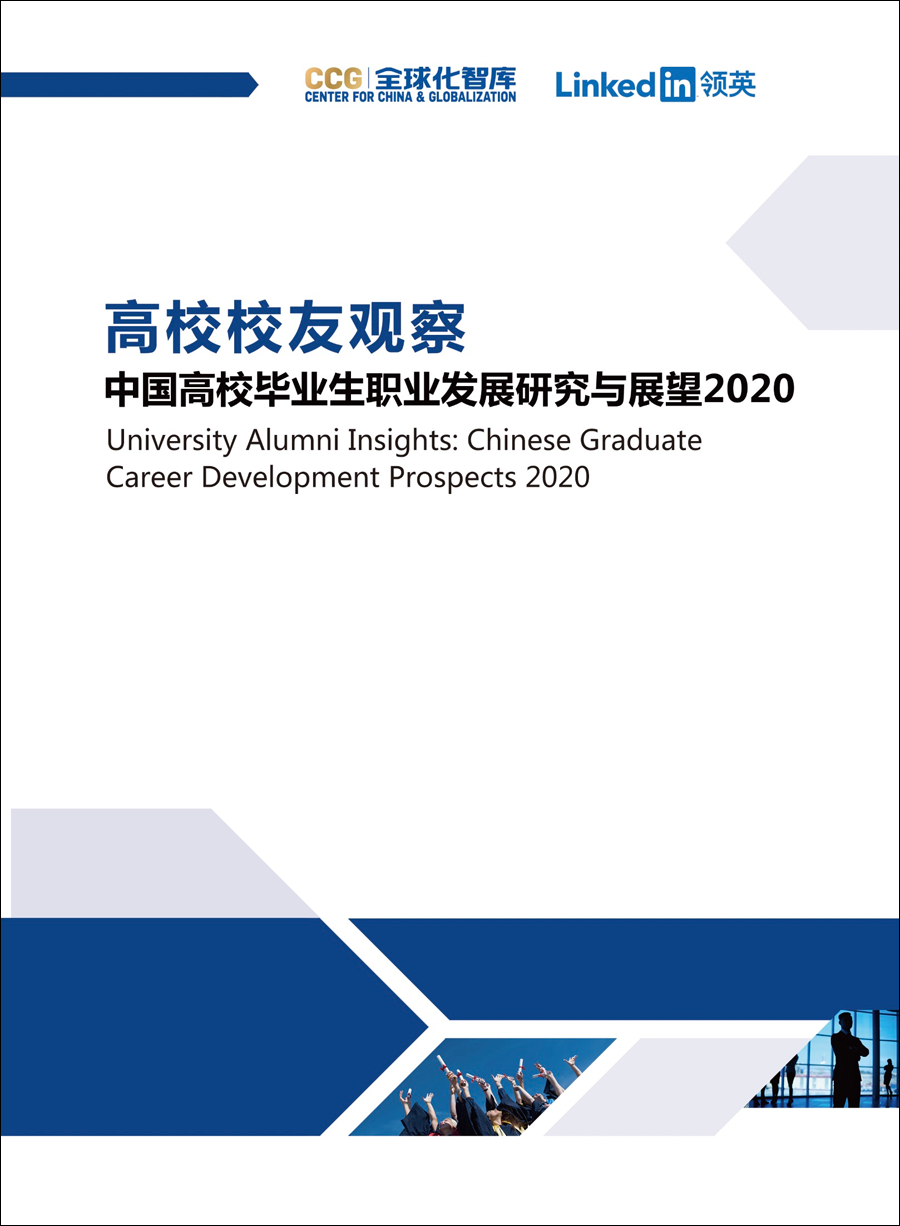
On October 29, 2020, the Center for China and Globalization (CCG) and LinkedIn China released the report University Alumni Insights: Chinese Graduate Career Development Prospects 2020.
Amidst uncertainties of the global development, COVID-19 has posed new challenges for global economic development. World Bank, in its “Global Economic Prospects” published in June 2020, estimated the global economy to shrink by 5.2% in 2020, resulting in the severest economic recession in the aftermath of World War II. According to LinkedIn data on global hiring rates, hiring activities in the global job market during the pandemic was much less active compared to the corresponding period last year. In most countries, hiring rates have dropped sharply and university graduates are entering the toughest employment season. In some countries and regions, however, due to effective control of the pandemic, local job markets have been recovering by varying degrees. According to LinkedIn’s Global Hiring Rate data, China was the first country to show positive growth in hiring rates, reaching to an annual growth rate of around 11% as of mid-June.
Overall, China continues to show sustained positive hiring growth, but university graduates still face substantial challenges. According to the Ministry of Education’s latest estimates, the graduate class of 2020 in Chinese universities’ will increase by 400,000 people compared to the previous year, reaching a record high of 8.74 million people. On one hand, due to the pandemic and tensions in international relations, many industries are currently facing challenges in terms of sustainable development as well as industrial transformation and upgrading. This has resulted in rising employment pressures. On the other hand, studying abroad as an important way to receive further education has also suffered from heavy losses due to the pandemic, circumscribing the choices of development pathways among university graduates. In this context, the ways in which university graduates choose their development pathways have become a focal point for all the relevant stakeholders.
To better empower university graduates, LinkedIn China and CCG have collaborated on a joint research. Using LinkedIn’s Economic Graph data , we conducted a “portrait analysis” on the profiles of more than 218,000 graduates from ten universities under the “Double First Class University Plan” (thereafter referred to as U10) , to gain insights with regards to the directions and trends of development undertaken by university graduates. We hope that our research can provide valuable insights to university graduates, current university students, as well as senior high school graduates who are about to enter universities or planning their professional development choices in advance. In this study, we also put forward policy suggestions on the development of university graduates and China’s trends of occupational and industrial development, providing references to universities and relevant government agencies.
Following are the key findings of the research.
1. Career development of U10 graduates demonstrates a benign talent circulation trend of “studying abroad – returning China for work”. Although more than 70% of U10 graduates study abroad, more than 80% of them choose to work in China. With increasing career opportunities in China and changes in international relations, it is highly probable that more professionals, including Chinese students studying abroad and other overseas Chinese, will opt for career development in China.
2. The overall trend of studying abroad remains stable, while destination countries for studying abroad have become more diversified. The proportion of U10 graduates who chose to study abroad has continued increasing, yet the growth rate of studying in the US has further slackened. As such, the proportion of university graduates studying in the UK, Hong Kong SAR, France, Australia, Singapore, and other countries and regions has increased on a yearly basis.
3. Cities with discrete degrees of economic development have shown substantial differences in terms of development orientation of “Double First Class” university graduates. In relatively developed cities, graduates with undergraduate degrees prefer to pursue further education, and are inclined to enter the job market after obtaining their master’s degrees. Nonetheless, in less developed cities, graduates with undergraduate degrees are inclined to enter the job market, and graduates with master’s degrees prefer to pursue further education.
4. U10 graduates with different educational attainments exhibit discrete career preferences in China. Graduates with undergraduate or master’s degrees prefer to work in application oriented industries, such as finance, consumer goods, media & communications. Meanwhile, graduates with doctoral degrees (or above) prefer to work in more professional fields, such as health care and legal industry.
1) Software & IT services is the most popular industry among U10 graduates. Most of the top 10 employers preferred by U10 graduates, including Tencent, Microsoft, Baidu and Alibaba, belong to software & IT services.
2) The manufacturing industry is one of the top choices among U10 graduates, and has a higher popularity among graduates with master’s or doctoral degrees than among those with undergraduate degrees. This shows that talents with higher educational background have contributed to the innovation of the manufacturing industry.
3) The nonprofit industry has become a popular choice for U10 graduates. Due to changing patterns of social development, this industry has been rapidly developing in recent years. Meanwhile, university graduates have been more enthusiastic about public welfare, paid more attention towards vulnerable groups, and increasingly focused on the dissemination and realization of values.
5. LinkedIn data shows that China and the US share a high similarity in terms of the popularity ranking of the top industries for first-time employment among university graduates. Software & IT services, manufacturing, education, corporate services, and finance are the main choices of first-time employment among university graduates in both countries.
In addition, university graduates in China prefer to work in consumer goods, hardware & networking, media & communications. Meanwhile, university graduates in the US are inclined to work in health care, retail, recreation & travel, public administration, as well as the nonprofit industry.
1) In the industry ranking of first-time employment among university graduates
(LinkedIn users), the consumer goods industry ranks higher in China than in the US. China is relatively developed in light manufacturing industry, due to its possession of a sizeable consumer market, which provides more opportunities for university graduates’ career development.
2) Media & Communications ranks among the top 10 industries in China for first time employment among university graduates (LinkedIn users), but is not listed in the US. Emerging business formats, such as new media, we-media, short videos, and live broadcasting have developed rapidly in China and formed a unique business model.
This has not only expanded the categories and boundaries of the job market, but also posed a significant impact on the global job market.
3) Health care ranks lower in China than in the US in terms of the first-time employment of university graduates (LinkedIn users), and the proportion of employment in hospital & health care, a sub-industry of health care, is far lower than that of the US.
Therefore, mechanisms of talent cultivation in relevant fields still remain to be improved. A similar situation exist in the field of recreation & travel, which ranks in the top 10 industries of first-time employment for university graduates in the US, but is not listed in China.
6. Management and data skills have become the key skills of various industries. Management skills such as “management”, “project management”, “strategic planning”, and “leadership”, as well as data skills such as “Python”, “Java”, “C++”, and “data analysis” are the key skills of U10 graduates among popular industries of employment.
7. The changes in U10 graduates’ skills are closely associated with the development of the industries. The comparison of emerging and declining skills in U10 graduates’ industries of employment shows that technology-intensive industries have started to pay more attention to professional skills and innovative capabilities. Meanwhile, non-technology-intensive industries pay more attention to the value of products and abilities to provide professional services. The development of personal skills is more closely associated with industry needs.
8. Data R&D positions may become popular choices for first-time employment among university graduates. Three of the top 10 most popular positions for U10 graduates in the US are data analyst, data scientist and quantitative analyst, yet these are not among the top 10 positions in China. With the innovation and development of China’s digital economy, more industries will have a stronger demand for data R&D.
9. COVID-19 has posed a significant impact on Chinese students studying abroad, and the destination countries thereof will be more diversified in the future. Following the outbreak of the pandemic, visa and immigration policies have become more stringent. Due to the tough situation of pandemic control in most countries, studying abroad will face challenges in its sustained growth. Under the influence of visa and immigration policies, as well as the situations of pandemic control, the destination countries for studying abroad may become more diversified.
10. COVID-19 has posed challenges and opportunities for the development and transformation of industries in China. As such, during the pandemic and post-pandemic era, employment and entrepreneurship among university graduates will become more flexible and diversified. Due to the effective control of the pandemic, China’s job market has witnessed a hiring rate that commensurate with the level of the same period last year, relieving pressures of employment among university graduates to some extent.
1) COVID-19 has posed a significant impact on both the supply and demand side of the job market. On the one hand, industries such as consumer goods, manufacturing, software & IT services have witnessed a more substantial negative shock. On the other hand, industries such as health care, legal and E-learning have gained more opportunities for further development, given the characteristics of those industries and higher market demand.
2) After COVID-19 was effectively under control in China, positions in industries such as health care and community services have been witnessing considerable recovery in terms of job opening. However, the recovery of job openings in human resource, finance, and engineering have been relatively slow.
3) With regards to the selection of industries of employment, U10 graduates not only focus on their own concerns of development, such as levels of salary and interests, but also take account into the industry’s risk tolerance and the demand of social sustainability embedded in the industry. This can provide practical guidance to university graduates in the face of a wider range of choices in terms of industries of employment.
